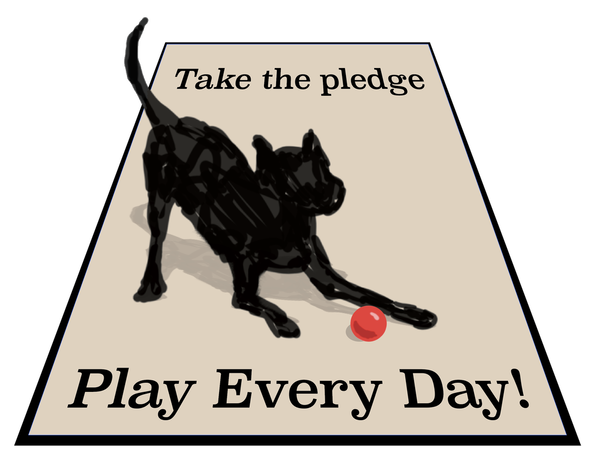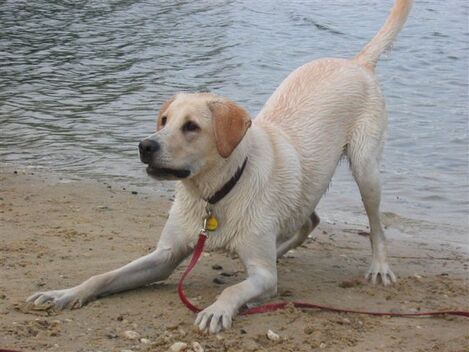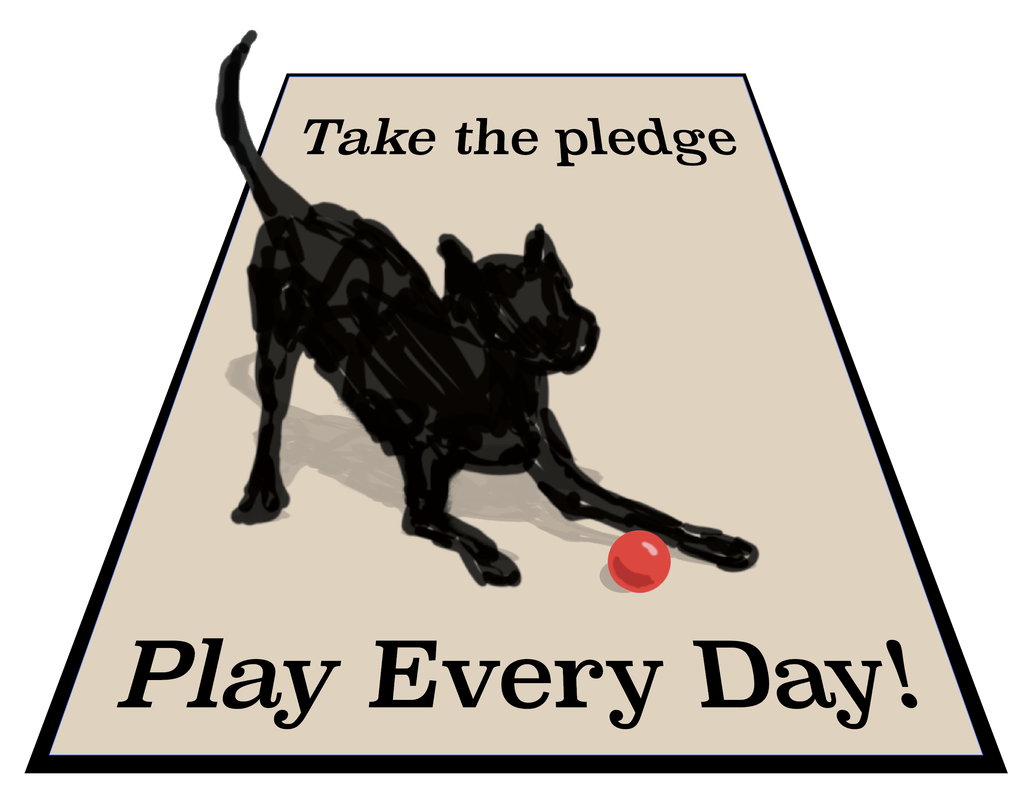Play Every Day
Play is essential.
Play is universal.
Play is part of our basic nature, like laughing and sleeping and dreaming.
Play makes us happier, healthier, smarter, more connected, and more creative.(1)
There are many types of play, but this is about playfulness as a social exchange, a posture, a way of being in the world.
Sure, there are difficult, serious problems in the world. Playing doesn't ignore that reality. However, we are going to have to figure them out together. If we lose our ability to play together, then we lose our ability to find common ground. If that happens, then all hope for solving our problems is lost.
I really like this description - “Play is the freedom to explore in a boundaried space.”(2) The boundaries are simply the rules of engagement. Whether you are playing a 100-year-old sport on national tv, or a little game you just made up in your living room, you have to mutually agree on and follow the rules. Maybe the rules fill a 100 page book. Maybe they are simply "don't step on a crack", or "roll it to me, and I'll roll it back."
At either end of the spectrum, if we lose the ability to agree on and play within a set of rules with another human being, we go down a bad path. I'm not talking about requiring a referee, judge, or other enforcer. I'm talking about playing within rules that we follow on our own because we agree on how this game, right now, is played. And, isn't every interaction with another person just a little game anyway?
We need more play in our lives, but the serious world can distract us and we can forget. The good news is that even if it's been years, it's still inside you. Your play circuitry is built in. You already know what to do.
If someone doesn’t understand your playfulness the first time, that’s ok. They may have forgotten how to play, or may not understand it amidst the sea of angry, surly, troubled, hurried, careless, and distracted interactions they usually see. Just try again next time. It will light a spark, they will recognize it, their body will remember, and eventually, they'll play with you.
People will work with people they don't really like, and even play with them if the situation is already set up. But to invite someone to play with you is something completely different. People don't invite people to play that they don't like. Think about that the next time someone tries to get you to play or be playful with them. They've just given you one of the best compliments possible, and they might not even realize it.
To give someone a play signal — an invitation to play — is to acknowledge your common ground, your common humanity, even their very existence when they might otherwise feel disconnected or invisible. Although your playfulness might only last a few seconds, it lets them know you see them and their struggle, and that you are in this together. It's a clear statement that no matter how bad things get, we can all still try to have a little fun.
Take my Play Pledge below. Try to act it out in your life. Watch how play and playfulness changes you and the people around you for the better. You can change the world, wherever you are, and whoever you see. Play with someone today!
Play is universal.
Play is part of our basic nature, like laughing and sleeping and dreaming.
Play makes us happier, healthier, smarter, more connected, and more creative.(1)
There are many types of play, but this is about playfulness as a social exchange, a posture, a way of being in the world.
Sure, there are difficult, serious problems in the world. Playing doesn't ignore that reality. However, we are going to have to figure them out together. If we lose our ability to play together, then we lose our ability to find common ground. If that happens, then all hope for solving our problems is lost.
I really like this description - “Play is the freedom to explore in a boundaried space.”(2) The boundaries are simply the rules of engagement. Whether you are playing a 100-year-old sport on national tv, or a little game you just made up in your living room, you have to mutually agree on and follow the rules. Maybe the rules fill a 100 page book. Maybe they are simply "don't step on a crack", or "roll it to me, and I'll roll it back."
At either end of the spectrum, if we lose the ability to agree on and play within a set of rules with another human being, we go down a bad path. I'm not talking about requiring a referee, judge, or other enforcer. I'm talking about playing within rules that we follow on our own because we agree on how this game, right now, is played. And, isn't every interaction with another person just a little game anyway?
We need more play in our lives, but the serious world can distract us and we can forget. The good news is that even if it's been years, it's still inside you. Your play circuitry is built in. You already know what to do.
- If you've lost your playfulness, wake it up again. It's been missing you.
- If you play, but not as much as you want, then try to play more. There are opportunities big and small all around you.
- If you are fully tapped into your playfulness, then share it. Invite others to play. It gives them permission to wake up something they may have needed for a long time.
If someone doesn’t understand your playfulness the first time, that’s ok. They may have forgotten how to play, or may not understand it amidst the sea of angry, surly, troubled, hurried, careless, and distracted interactions they usually see. Just try again next time. It will light a spark, they will recognize it, their body will remember, and eventually, they'll play with you.
People will work with people they don't really like, and even play with them if the situation is already set up. But to invite someone to play with you is something completely different. People don't invite people to play that they don't like. Think about that the next time someone tries to get you to play or be playful with them. They've just given you one of the best compliments possible, and they might not even realize it.
To give someone a play signal — an invitation to play — is to acknowledge your common ground, your common humanity, even their very existence when they might otherwise feel disconnected or invisible. Although your playfulness might only last a few seconds, it lets them know you see them and their struggle, and that you are in this together. It's a clear statement that no matter how bad things get, we can all still try to have a little fun.
Take my Play Pledge below. Try to act it out in your life. Watch how play and playfulness changes you and the people around you for the better. You can change the world, wherever you are, and whoever you see. Play with someone today!





